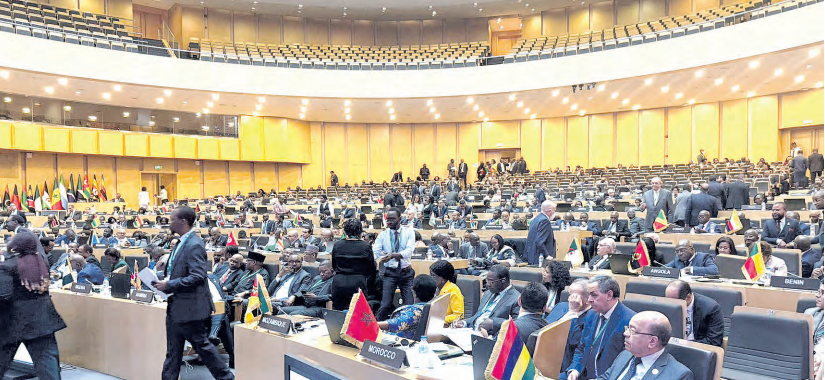

The biblical narrative of the Tower of Babel serves as a profound allegory for the fragmentation of human unity into diverse languages and cultures.
In the African context, this tale mirrors the continent’s intricate tapestry of ethnicities, languages, and tribes. Africa has more than 1,500 distinct languages and numerous ethnic groups, a testament to its rich cultural heritage.
However, this diversity has also been a double-edged sword, often leading to divisions and conflicts that hinder collective progress. Ethnic languages are more than just means of communication; they are carriers of identity, history, and worldviews that shape communities.
In Africa, where language is deeply tied to ethnicity, these linguistic differences have often reinforced divisions rather than fostered unity.
While indigenous languages preserve cultural heritage, they also create barriers to national cohesion. Political leaders frequently exploit linguistic affiliations to mobilise support, deepening ethnic rivalries.
Unlike global lingua francas that facilitate broad communication, Africa’s linguistic diversity has at times hindered collective action, making it easier for external forces to exploit divisions and harder for its people to speak with one voice.
A poignant example of such division is the 1994 Rwandan Genocide, in which deep-seated animosities between the Hutu and Tutsi communities culminated in the massacre of approximately 800,000 individuals within 100 days.
This atrocity not only devastated Rwanda but also had ripple effects across the region.
Long before the genocide, both Hutu and Tutsi communities had settled in what is now the Democratic Republic of Congo, with Tutsis, often referred to as Banyamulenge, establishing a presence in South Kivu, while Hutu populations also formed communities due to pre-colonial migrations and colonial-era labour movements.
The 1994 genocide drastically altered the region’s demographic and political landscape, as more than a million refugees, both Hutu civilians and génocidaires, fled into the DRC.
Their arrival exacerbated historical tensions, and armed groups formed along ethnic lines, leading to prolonged conflicts.
The resurgence of groups like M23, primarily composed of Tutsi fighters, highlights deep-seated hostilities, making the DRC a battleground for unresolved ethnic grievances.
Despite its vast mineral wealth, the country remains mired in poverty and instability, a stark reminder of how internal divisions — both homegrown and imported — can hobble national development.
The challenges faced by countries such as Ethiopia and South Sudan further exemplify how internal divisions hinder progress.
Ethiopia, with its complex ethnic federalism, has witnessed recurring conflicts, including the Tigray War, which strained national unity and weakened governance.
South Sudan, despite gaining independence in 2011, has struggled with ethnic rivalries that have fuelled civil war and economic stagnation.
These cases demonstrate how ethnicity influences national decision-making, ultimately shaping Africa’s continental politics. The recent African Union Commission chairperson elections in February further highlight Africa’s divisions.
Djibouti’s Foreign Minister, Mahamoud Ali Youssouf, emerged victorious, defeating Kenya’s Raila Odinga and Madagascar’s Richard Randriamandrato.
While many factors influenced the outcome, the repetitive voting underscored a deeply divided continent. Notably, a bloc of Muslim-majority nations aligned behind Youssouf, demonstrating a form of unity transcending ethnic and linguistic differences.
This strategic cohesion demonstrates how shared religious affiliations and geopolitical interests can serve as a unifying force in shaping continental leadership. In contrast, the Christian demographic in Africa remains fragmented along tribal and denominational lines.
While Christianity is widespread, its adherents are often divided into competing sects, each with its own priorities. Unlike the structured solidarity among Muslim-majority nations, Christian-majority states frequently operate in isolation, with tribal loyalty often superseding broader religious or national interests.
This division weakens their collective influence, leaving them vulnerable to external manipulation and internal disunity. The cohesion observed among Muslim-majority nations, as seen in the AUC elections and broader geopolitical manoeuvres, underscores the strategic advantage of unified action.
By rallying behind common goals, these nations assert themselves effectively on the global stage, securing leadership positions and advancing their collective interests.
This unity is not merely a byproduct of faith but a deliberate strategy ensuring continued infl uence in Africa’s political and economic future.
Meanwhile, Christian-majority nations, fragmented by tribal and denominational allegiances, risk being sidelined in the competition for power and resources. Reggae artist Teddy Dan once sang about a “United States of Africa”, an idealistic vision of continental unity.
In a striking irony, he was not African but Jamaican, yet he saw the necessity of African solidarity more clearly than many African leaders. His song called for the continent to rise above its ethnic and national divisions, uniting under one banner to reclaim its rightful place on the global stage.
The reggae movement, deeply rooted in Pan-Africanism, has long championed this vision of a united Africa, free from colonial legacies and internal strife.
However, while such unity remains a powerful aspiration, Africa’s political and ethnic realities suggest it is a distant dream. If an outsider like Teddy Dan could recognise the continent’s need for cohesion, why do so many African nations continue to allow divisions to dictate their fate? Ultimately, as the biblical adage suggests, “The just shall live by faith.”
In a world where strategic unity determines influence, those who remain divided may fi nd themselves increasingly marginalised, particularly Christians.
Ethnicity, once the cornerstone of identity and political organisation, is proving to be an untenable foundation for the future.
As the world moves towards blocs formed on the basis of shared strategic interests rather than ethnic lineage, Africa must recognise that clinging to tribalism will only perpetuate its marginalisation.
Caleb Mwamisi is a Political commentator










